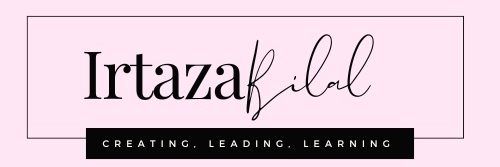Unlocking the Treasure Trove of Knowledge: The Best Way to Acquire Knowledge from Readings
Introduction
In our digital age, knowledge is more accessible than ever before. With a click of a button, we can access a vast sea of information, whether it’s in the form of books, articles, research papers, or blogs. However, the real challenge lies in acquiring and retaining that knowledge effectively. Furthermore, Reading is one of the most fundamental ways we acquire knowledge, and mastering this skill is key to lifelong learning and personal growth. In this blog, we will explore the best ways to acquire knowledge from readings, helping you become a more efficient and effective reader.
- Choose Your Material Wisely
The first step in acquiring knowledge from readings is to be selective about what you read. Not all material is created equal. To optimize your reading experience, consider the following:
- Purpose: Identify your purpose for reading. Are you looking for entertainment, information, or research material? Your purpose will guide your reading choices.
- Relevance: Ensure that the material is relevant to your goals and interests. Focusing on what matters to you will make the reading experience more engaging and fruitful.
- Credibility: Verify the credibility of the source. Trustworthy sources, whether books or online articles, are more likely to provide accurate and valuable information.
- Active Reading
Active reading is a practice that involves engaging with the text on a deeper level. Instead of passively scanning words, actively reading allows you to absorb and retain knowledge more effectively.
- Annotate: Use highlighters, margin notes, or digital tools to annotate the text. Mark key points, unfamiliar terms, or passages that resonate with you.
- Ask Questions: As you read, ask yourself questions about the content. What is the main idea? How does this relate to what you already know? Questions promote active thinking and understanding.
- Summarize: After reading a section or a chapter, take a moment to summarize what you’ve learned in your own words. This reinforces your understanding and retention of the material.
- Time Management
Efficient time management is crucial when acquiring knowledge from readings. Allocate dedicated time for reading and establish a reading schedule. Here are some tips:
- Set Goals: Determine how much you want to read in a specific time frame. Setting goals will keep you on track and motivated.
- Avoid Multitasking: Reading requires focus. Avoid distractions like checking your phone, email, or social media while reading.
- Breaks: Take short breaks between reading sessions to refresh your mind. However, This helps prevent mental fatigue and enhances comprehension.
- Review and Reflect
Acquiring knowledge isn’t just about reading; it’s also about retaining and applying what you’ve learned. Regularly review and reflect on your readings:
- Review: Revisit your annotations, summaries, and notes periodically. This reinforces your memory and understanding of the material.
- Discuss: Engage in discussions with others who have read the same material. Therefore, Sharing insights and different perspectives can deepen your understanding.
- Apply: Put the knowledge you’ve acquired into practice. Whether it’s through writing, problem-solving, or real-life application, practical experience solidifies your learning.
Conclusion
Acquiring knowledge from readings is a lifelong skill that can open doors to personal growth, professional success, and a deeper understanding of the world. Additionally, By choosing your material wisely, practicing active reading, managing your time effectively, and reviewing and reflecting on what you’ve read, you can become a more efficient and effective reader. Lastly, In today’s information-rich world, reading is your gateway to knowledge, and with the right approach, you can unlock its true potential. Happy reading!

